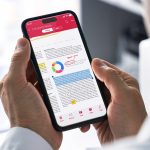The first 1,100 GP practices allowed to dispense the vaccines were inundated with calls from people trying to book appointments after their details were released by the government yesterday.Elderly people desperate for the vaccine were left on hold on the telephone for more than half-an-hour at a time trying to make an appointment only to be rejected by multiple clinics which said they did not have enough vaccine to accommodate them.The Australian Medical Association and the Royal Australian College of General Practitioners said the government must warn the public they may have to wait weeks to get an appointment.“Unlike the flu season, where 15 million doses are already stockpiled, this rollout relies on a weekly supply of COVID-19 vaccine doses that is capped,” the groups said in a statement..Some GP practices have been given just 50 or 100 doses of the vaccine.“This means that general practices will have only a modest number of doses available for patients for now”.“It’s clear from the calls many general practices have received this morning that the Government needs to better communicate with the community on the vaccine rollout process, and not build unrealistic expectations, particularly at this early stage,” the organisations said.Meanwhile Health Minister Greg Hunt abruptly updated the rules applying to the program today.Yesterday his office confirmed GPs had to accept any eligible patients for vaccination on a first come, first served basis regardless of whether they were regular patients at the GP clinic.“It’s just a minor correction to that which was published today … who a practice takes is a matter of for a general practice, but as to the fact that it has to be bulk billed, it does have to be bulk billed,” he said.Only 4,500 of the nation’s over 6,000 GP practices have applied to deliver the vaccine so this complicates the task of getting a vaccine for patients whose GP clinics are not delivering it.Australian Medical Association vice president Dr Chris Moy told News Corp the vaccine rollout had “ boiled over”.“The excitement is boiled over to a sense that, patient are expecting that suddenly they’ll get to make appointments with a clinic practice is only going to have a small amount of vaccine,” he said.HUNT SAYS GP VACCINATIONS WILL START NEXT WEEK More than 1000 GPs will start vaccinating Australians from next week.Over 70s and over 80s will be able to vaccinate as part of the 1b phase.“We have 98 per cent take-up at this stage among GPs who have applied and been accepted,” Mr Hunt said.“They have placed orders and we have over 1000 and 69 that have placed orders and have had their details provided publicly.“Additionally, there will be over 100 Commonwealth vaccination clinics that will be made available.”The Health Minister said today marked a milestone with more than 200,000 Australians vaccinated including at more than 500 aged care centres taking in 45,000 aged care residents.National COVD testing has passed 50 million, he added.“When you think of two potential outbreaks into state on the weekend, with one follow-up case, that is an extraordinary side of containment capacity,” Mr Hunt said, referring to the latest case in NSW.Brendan Murphy urged Australians to be patient: “It is going to take many weeks to get through 1B, and while some GP clinics are coming online next week, they won’t be releasing appointments until they are sure of their vaccine deliveries, which are coming in the next day or two, and there will progressively release appointments. “Please do not badger your GPs, take your time, everyone in 1B will be vaccinated in coming weeks. But it will take a while for this to scale up.” It comes as GP clinics went into meltdown today as thousands of elderly people rushed to make COVID vaccine appointments in time for next week’s rollout but there was not enough vaccine to cope with demand.Many patients were kept on hold, others were told they couldn’t make an appointment because there was not enough vaccine, others were trying to charge for the vaccine.Some general practitioners were refusing to provide appointments to people who were not on their books even though this is against the rules of the program.Tony Juhanson, aged 74, from Mount Camel in Victoria was incensed when a GP clinic in Bendigo insisted he pay for an initial appointment to check whether he was fit to receive the vaccine.He would then have to return for a second free appointment to get the vaccine, he told News Corp.“We need to get it out in the open that doctors surely can’t be making money to give access to a free government vaccination, I don’t think that’s right,” he said.Bendigo MP Lisa Chester said her office had been bombarded with calls about problems getting a vaccine appointment.“When they then ring the clinic they’re being told we’re not taking any bookings, we don’t have the vaccine yet call back later, or they’re being told, unless you’re a patient of ours, we actually don’t know when we can get to you,” she said.The Health Minister Greg Hunt needed to act to restore confidence in the vaccine problem, Ms Chester said.“It’s unacceptable and it’s not fair on the staff in these clinics that they’re getting bombarded by people saying but the websites said that I can book,” she said.“Our medical staff shouldn’t have to be having that conversation, just because the Prime Minister wanted to make a big fancy announcement and say you can get it from today, or you can get it from the 22nd without having that support ready on the ground. This is not the time to be creating confusion about a National Vaccine rollout,” she said.National Vaccine RolloutPM TO SEND COVID JABS AS PNG OUTBREAK POSES ‘RISK’ TO AUSTRALIA Thousands of doses of the AstraZeneca COVID-19 vaccine will be sent to Papua New Guinea as the country’s coronavirus crisis poses “very real risks” to Australia, Prime Minister Scott Morrison said.Mr Morrison said 8000 doses would be sent to the island nation immediately, with the hope more could be shipped soon.“With the support of the PNG government we’re making a formal request to AstraZeneca and the European authorities to access 1 million doses of our contracted supplies of AstraZeneca not for Australia, but for PNG, a developing country in desperate need of these vaccines,” Mr Morrison said.Australia will also help bolster PNG’s personal protective equipment supplies through supplying more than 1 million surgical masks, as well as 100,000 gowns, bottles of sanitiser, and gloves among other items.Mr Morrison said Queenslanders, in particular northern Queenslanders, were most at risk from the worsening coronavirus situation in PNG.He said following discussions with Queensland Premier Annastacia Palaszczuk, all passenger flights from PNG into Cairns would be suspended from 11.59pm on Wednesday. All charter flights into Australia would also be suspended, with “limited exemption for medevac and other critical flights”.Passenger caps on flights from Port Morsby to Brisbane would be reduced from this time, and all outbound travel exemptions by Australians to PNG would be suspended except for essential and critical workers.“If you’re here, you stay. We cannot risk people going into those areas and back to Australia. We will move as quickly as we can to move from a 96-hour pre-departure screening to a 24-hour pre-departure screening,” Mr Morrison said. NED-3546 Papua New Guinea’s Covid emergencyChief medical officer Paul Kelly said coronavirus case numbers from PNG would be a “major underestimate”.“There is a big outbreak of COVID-19 in Papua New Guinea. We know this from the places that are able to be doing testing,” Dr Kelly said.“They’ve done mass test entering and almost half the samples are positive,” Dr Kelly said. “They’re finding the same when people are being admitted into hospitals in Port Moresby. Half of women who are coming in due to pregnancy are positive.”Dr Kelly also feared a PNG-strain of the virus could develop if the outbreak continued to spiral.“That would be not only a major problem for PNG but also for us and the region,” he said.He added: “We don’t have any indication of that at the moment.“The genomics analysis we’ve done does not show a variant of concern but it is important for us to assist to get that outbreak under control.”A small team of Australian medical workers will also be deployed to PNG to assess the coronavirus situation and report back to Canberra.NEW CASE IN SYDNEY COVID OUTBREAKAnother returned traveller has tested positive to COVID-19 while staying on the same floor where a security guard who also contracted the virus worked. NSW Premier Gladys Berejiklian confirmed the news on Wednesday morning and said the new case could be the “missing link” health authorities need.“Health believes they (new case) acquired (COVID) when they went into the hotel and we’re being very upfront about that,” Ms Berejiklian said.“They are an overseas traveller but they didn’t have the virus when they came into the hotel … health believes that because of the timing they contracted the virus.”It is believed the guard contracted the virus while working on the 11th floor at the Sofitel in Wentworth but officials are yet to determine how.An extensive look at CCTV footage shows he did not breach any protocols.A previous returned traveller at the hotel had tested positive, but the link between them and the guard remains a mystery.“It’s not surprising the case is on the same floor as the security guard and the traveller that had the original case,” the premier said.“There is no cause for us to be alarmed in the community.”Ms Berejiklian said the case would not impact an expected easing of restrictions later on Wednesday.“At this stage there’s no cause for us to change any of that,” she said.“But of course, as I say every day the pandemic is evolving, and if we have to adjust any of our settings we will.”The guard was the state’s first coronavirus case in 55 days. He had received one dose of the Pfizer vaccine earlier this month.Urgent contact tracing is underway after NSW Health revealed the 47-year-old man, who works across two Sydney quarantine hotels, Sofitel Wentworth in Sydney’s CBD and the Mantra hotel at Haymarket, caught the virus.Ms Berejiklian confessed on Tuesday that health authorities may “never find the link” between the hotel quard and returned traveller, but today said the revelation that another patron had tested positive will help with the investigation. “As always during a pandemic we ask all of our citizens to be on high alert and follow health advice,” she said. “Fortunately the person is already in quarantine … health will be making further investigations, it could be very much the missing link between the overseas traveller and the guard.”She said investigations are already underway and an update will be provided later in the morning.Earlier this week chief health officer Dr Kerry Chant said the man also had a full-time office job and worked in the hotels over weekends.“(He was) was infectious while doing a shift and we have contacted around 130 people who worked from 7pm on Friday night to 7am on Saturday, overlapping that March 12 to March 13 (window),” she said at the time.“We are asking those individuals to immediately self-isolate and get a test. Basically, that allows us time to work through and ascertain the nature of interaction that this security guard had with those quarantine workers.”CMO BACKS ASTRAZENECA JABThere is “no evidence” the AstraZeneca is linked to blood clotting despite several European countries halting its use over the fear, the nation’s chief medical officer says.Germany, Italy, France and Spain are among a host of countries to suspend their COVID-19 vaccine rollouts while they investigate reports of blood clotting in patients who have been vaccinated. But chief medical officer Paul Kelly said on Tuesday “unusual events” were expected in any major vaccine rollout.He said blood clots were “fairly common”, with 17,000 reported in Australian annually, but said authorities would “take it seriously … (and) investigate”.“We do expect to see blood clots at the time when we when vaccinations are given,” he said.“But this does not mean that an event that happens after vaccination has been given is indeed due to that vaccine.“From my perspective, I do not see that there is any specific link between the AstraZeneca vaccine and blood clots, and I’m not alone in that opinion.He said 17 million AstraZeneca doses had been administered across Europe and the UK without clear evidence linking it to blood-clotting. “That’s important … there has been no solid evidence that blood clots, or any other major event, has occurred in relation to the AstraZeneca vaccine,” he said. Health Minister Greg Hunt said the government continued to “clearly and unequivocally” support the AstraZeneca rollout.“The TGA does not have any evidence of a biologically plausible relationship that could suggest a cause and effect relationship during vaccination and blood clots,” he told parliamentIt comes as CSL, the country’s only vaccine manufacturer, told The Guardian discussions about the possibility of producing other vaccines if needed were occurring with the government.“CSL does not have the current capacity to manufacture mRNA vaccines but we have engaged with government in relation to future possibilities,” CSL’s chief scientific officer, Dr Andrew Nash, told The Guardian.Australia’s medicines watchdog has granted approval for Pfizer’s mRNA vaccine.NED-3328-COVID-19-vaccines-Options-and-how-they-workCANAVAN CALLS TO HALT ASTRAZENECA JABSAgainst the advice of health experts and the government, Nationals Senator Matt Canavan has called for Australia to suspend the rollout of the AstraZeneca vaccine.The backbencher has claimed it is “time” to follow some European countries, who have temporarily paused use of the AstraZeneca jab pending an investigation into a small number of blood clot cases among people vaccinated. Germany, Italy and France have all announced they would be pausing their rollout of the vaccine pending an assessment from the European Medicines Agency (EMA).“We should heed these concerns that European countries have a longer experience with the rollout of this (vaccine),” he said. “They have a greater imminent threat from the coronavirus so they don’t have any incentive to glibly suspend their role and we’re obviously doing so through legitimate concerns.”But the push from Mr Canavan “don’t represent the government’s view” Deputy Prime Minister Michael McCormack says.But Mr McCormack refused to condemn or reign in his backbench colleague who has broken with government and health advice in calling for the rollout to be suspended after several European countries took the same step. “I would have preferred if (Mr Canavan) hadn’t have actually said what he said, but given the fact that he has, that it’s out there, I get that it’s his personal view, he’s entitled to his personal view,” Mr McCormack said. “Look (Mr Canavan’s comments) don’t represent my views and they don’t represent the government’s view.”As of March 10, the EMA has reported a total of 30 cases of blood clotting among almost 5 million people vaccinated with the AstraZeneca shot in Europe.Mr Canavan said as Australia did not face any “imminent risk” of coronavirus spread, “surely the prudent approach” would be to suspend the rollout and look at evidence that will emerge “in coming months”.Asked if he had faith in the Therapeutic Goods Administration (TGA) process, Mr Canavan said: “I don’t believe the teacher is infallible. I’ll say that. I don’t think they’re the Vatican.”But the comments were condemned by Labor’s Health spokesman Mark Butler. “Labor has strong confidence in the ability of the Therapeutic Goods Administration to monitor any reports about potential adverse events, and to give appropriate advice to the Australian people and Australian governments,” he said.University of Sydney Professor Julie Leask said the TGA and vaccine safety experts were keeping a “close eye” on the outcomes of the rapid review of the blood clot cases. “At this stage it appears that the blood clots may have occurred in these people anyway and that the vaccine did not cause them, but investigations will continue,” she said. “Regulators look at things like biological plausibility, evidence from the trials, what is happening in other countries, and background rates to see if there is an unexpected rise in blood clot events.”Queensland University of Technology Emeritus Professor Gerry Fitzgerald is an expert in public health and said blood clots were “extremely common” in normal population samples.“The countries that have suspended the use of the AstraZeneca vaccine have acted with extreme caution by suspending vaccination, until such time as the risk can be assessed,” he said. “The scientifically conducted clinical trials of the vaccines prior to their approval did not identify any increased risks associated with the vaccine.”NED-3447 Countries who have banned AstraZenicaQLD HAS ‘MAJOR CONCERNS’ ABOUT PNG SPREADAustralia will step up its support for Papua New Guinea amid concerns that coronavirus is spreading there and could jump to Queensland.Queensland Premier Annastacia Palaszczuk has revealed that travellers from PNG account for half of the COVID-19 cases in the state’s hotel quarantine system.State and federal authorities are on high alert for cases in the Torres Strait, where Australia’s most northern islands are just a short boat ride from the PNG mainland. Travel between Torres Strait and PNG villages has been banned since the start of the pandemic, but there are fears the virus could spread into the state across the porous border. According to The Australian, cabinet’s national security committee discussed the crisis at a meeting on Monday night and Foreign Minister Marise Payne will announce on Tuesday that more Australian medical assistance teams will deploy to PNG.There will be an effort in the coming days to ramp up the rollout of COVID-19 vaccines to the country’s health workers, many of whom are already infected.The Queensland Premier has revealed that in recent COVID testing support for PNG, Queensland Health identified 250 positive cases in just 500 tests.“We have major concerns now about what is happening in Papua New Guinea,” said Ms Palaszczukon Monday.“PNG is on the doorstep of the Torres Strait and Queensland and I hope that I will be able to speak to the Prime Minister or the Prime Minister’s office in the next 24 hours just to talk about our concerns there (and) have a look at the flights coming in.”PNG’s high commissioner to Australia, John Kali, has sought urgent help from Australia for COVID-19 assistance. Australia has pledged $144m for COVID-19 vaccinations in PNG over three years as part of a $500m health security package, but the federal government has been under pressure to deliver more.There are concerns that the public funeral for former Papua New Guinea prime minister Michael Somare in Port Moresby may have been a ‘superspreader’ event for the virus.The official number of COVID-19 cases in PNG is 2173 but is thought to be much higher due to low testing rates. – additional reporting Heath Parkes-Hupton, Ellen Ransley and Evin PriestNAT – Stay Informed – Social Media
Powered by WPeMatico






